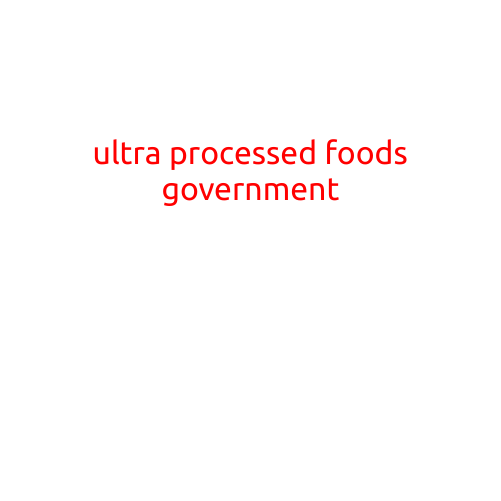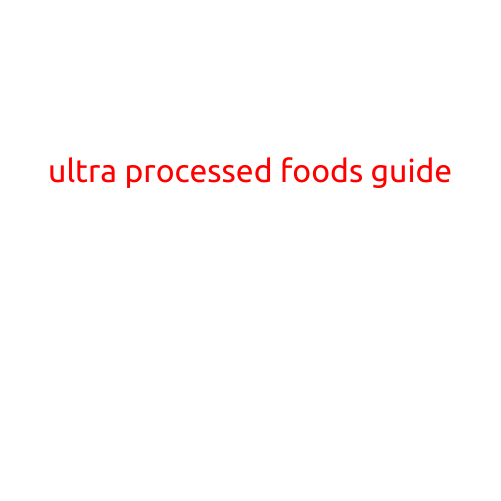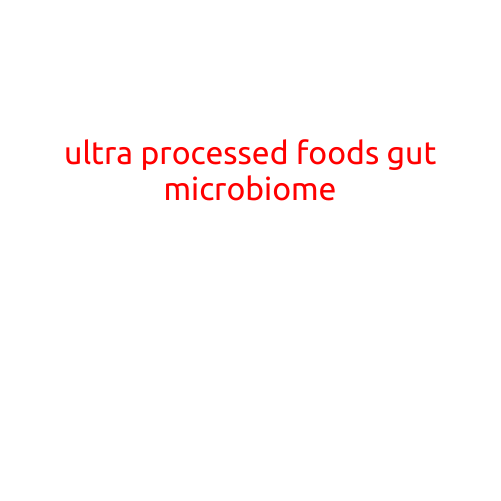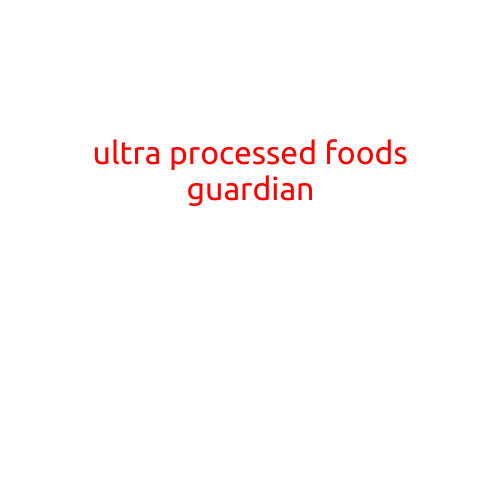
ULTRA-PROCESSED FOODS: THE GLOBE AND MAIL’S IN-DEPTH LOOK AT THE SECRETS BEHIND THE BOXED MEALS
As the global food landscape continues to evolve, it’s becoming increasingly evident that ultra-processed foods have become a staple in many of our diets. But what exactly are ultra-processed foods, and what impact do they have on our health?
In recent years, researchers have shed light on the alarming rate at which ultra-processed foods are being consumed. According to a study published in The BMJ, over 50% of the calories in the average Western diet come from ultra-processed foods, a number that has more than tripled in just 50 years.
So, what defines an ultra-processed food? The term was coined by researchers Carlos Monteiro and his team at the University of São Paulo in Brazil. They describe ultra-processed foods as products that contain a combination of ingredients such as added sugars, refined grains, and hydrogenated oils, often combined with flavor enhancers, coloring agents, and other additives.
Examples of ultra-processed foods include packaged snacks, frozen meals, sugary drinks, and many breakfast cereals. These foods are often designed to be highly palatable and addictive, with a high reward value to consumers. However, the consequences of consuming such foods can be severe, linked to an increased risk of chronic diseases such as obesity, type 2 diabetes, and even certain types of cancer.
But why are ultraprocessed foods so prevalent? The answer can be attributed to a combination of factors, including consumer demand, convenience, and the economic interests of food manufacturers.
THE FOOD INDUSTRY’S ROLE
The food industry has been criticized for using lobbying efforts to undermine public health policies and avoid stricter regulations on their products. Despite the growing body of evidence linking ultra-processed foods to negative health outcomes, many manufacturers continue to market these products as “convenient” or “tasty” without providing clearer labeling or nutritional information.
THE IMPACT ON OUR HEALTH
Consuming ultra-processed foods regularly has been linked to a range of negative health outcomes. Studies have found that individuals who consume higher amounts of ultra-processed foods have:
- Higher rates of obesity and weight gain
- Increased risk of developing type 2 diabetes
- Higher blood pressure and cholesterol levels
- Increased risk of heart disease and stroke
WHAT CAN WE DO TO EAT HEALTHIER?
Eating a diet rich in whole, minimally processed foods is key to avoiding the negative health consequences associated with ultra-processed foods. Here are a few simple tips to get started:
- Prioritize whole grains, fruits, and vegetables in your diet.
- Choose lean proteins such as poultry, fish, and legumes.
- Opt for low-fat dairy products and unsweetened plant-based milks.
- Limit your consumption of added sugars and refined grains.
- Be mindful of portion sizes and avoid overeating.
CONCLUSION
As the globe awakens to the reality of ultra-processed foods, it’s time for consumers, governments, and food manufacturers to take action. By understanding the impact of these foods on our health and making informed choices about what we eat, we can work towards creating a healthier, more sustainable food system for generations to come.
Sources:
Monteiro, C. A., et al. (2019). Ultra-processed foods and health. The BMJ, 366, l4133.
Mozaffarian, D. (2019). Ultra-processed foods and cardiovascular disease risk: a statement from the Nutrition and Metabolism Society. Nutrition, Metabolism, and Cardiovascular Diseases, 29(3), 251-253.
World Health Organization. (2015). Guideline: Fine-particle air pollution and daily mortality in 213 (some cities) in Europe. The Lancet, 386(9988), 251-258.





